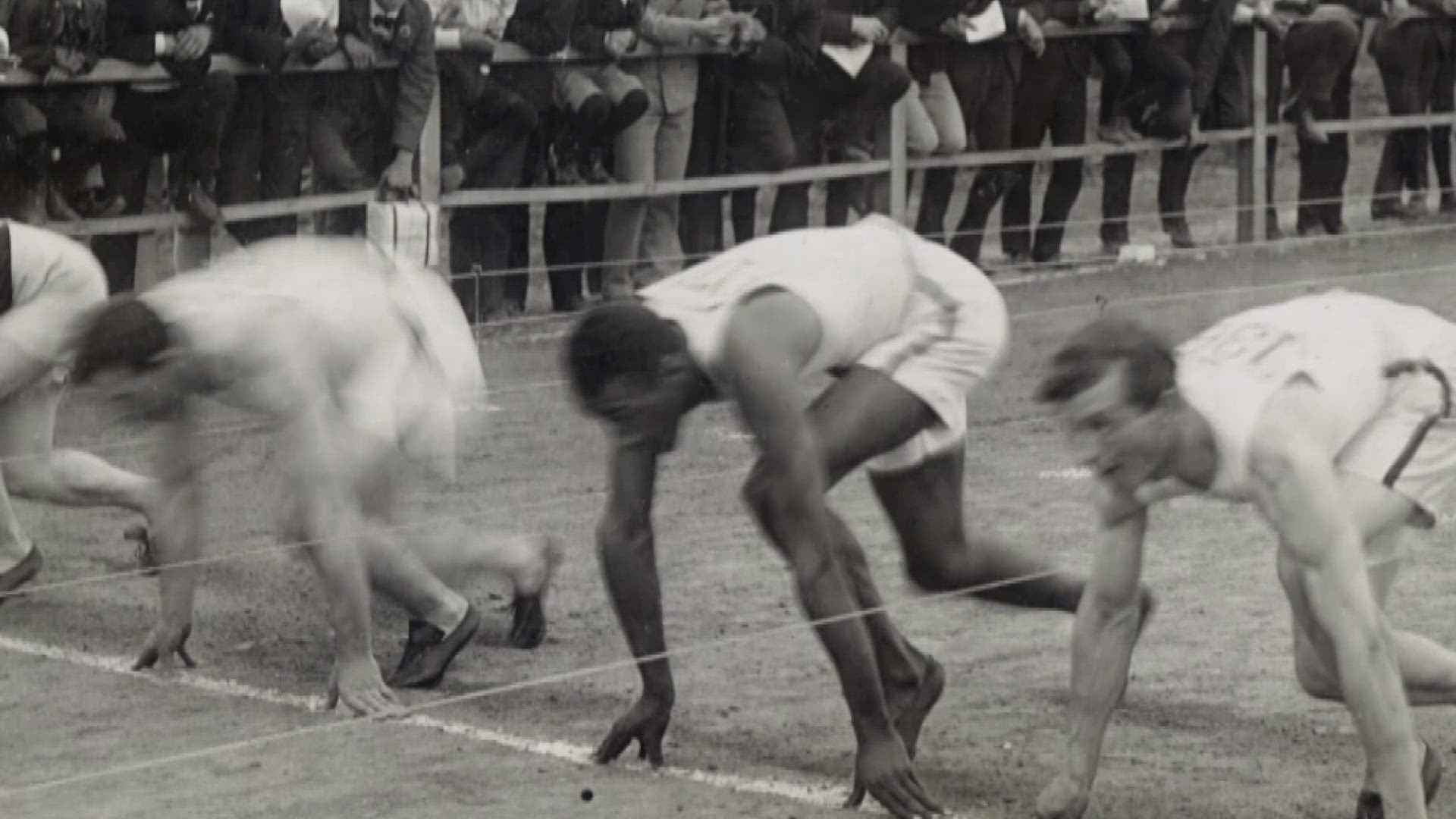ST. LOUIS — Editor's note: The video published above is a KSDK report on the darker history of the 1904 Olympic Games in St. Louis.
When you look at the history of the Olympic Games, the most significant medal count disparity of all-time came in 1904, the first time it was ever held in the United States of America.
But it was also an Olympics overshadowed by long-lasting controversy, as it coincided with an event rooted in racism.
On the athletics side, it was a triumph for the United States: Out of 280 possible medals, the United States claimed 231 of them (76 gold, 78 silver and 77 bronze). Germany was the next highest with 15 (4 gold, 5 silver and 6 bronze).
The 1904 Olympics is also the first time an African-American medalist took the podium, as hurdler George Coleman Poage won bronze. And in gymnastics, an American with a wooden leg won six medals (three gold, one silver and one bronze).
But tensions caused by the Russo–Japanese War and difficulties in traveling to St. Louis resulted in very few top-class athletes from outside the United States and Canada participating. Of the 650-plus athletes, roughly 60 of them were not representing the U.S. or Canada.
For all the stories of American dominance that year, a shadow still looms over these games that contributes to why it's not mentioned in a better light, if at all, in Olympic history.
The darker history of the 1904 Olympics in St. Louis
The 1904 Olympic Games were initially set to be held in Chicago, but an Olympic-organizing committee pivoted to St. Louis to combine the Olympics with the Louisiana Purchase Exhibition, a large fair celebrating the 100th anniversary of the U.S. acquisition of the Louisiana Territory. It was also known as the "1904 World's Fair."
The World's Fair offered its own two-day, 18-event "Special Olympics" known as the Anthropology Days. The event was rooted in racism and colonialism, marketed under the guise of science. Thousands of African, Filipino and Indigenous people were put on display in "human zoos" and forced to compete in contests including baseball throwing, shot put, running, broad jumping, weight lifting, pole climbing, and tugs-of-war.
The results of these competitions were then used to rank "primitive" peoples within a hierarchy of cultures, reinforcing racial stereotypes of the era, per a journal written by the University of Indiana,
The 1904 St. Louis Games were such a failure that the 1906 Intercalated Games became known as the Games that "saved" the Olympics. The Intercalated Olympic Games were to be a series of International Olympic Games halfway between what we know as the Olympics. This proposed series of Games, intercalated in the Olympic Games cycle, was always to be held in Athens and was to have equal status with the International Games. However, the only such Games were held in 1906.
The next Olympic Games were held in London in 1908.
The Summer Olympics have never returned to St. Louis since, but have been held in America three more times (Los Angeles twice and Atlanta once). Los Angeles will host the Summer Olympics for its third time in 2028, only the third city in the world to do so.
More Olympics coverage:

